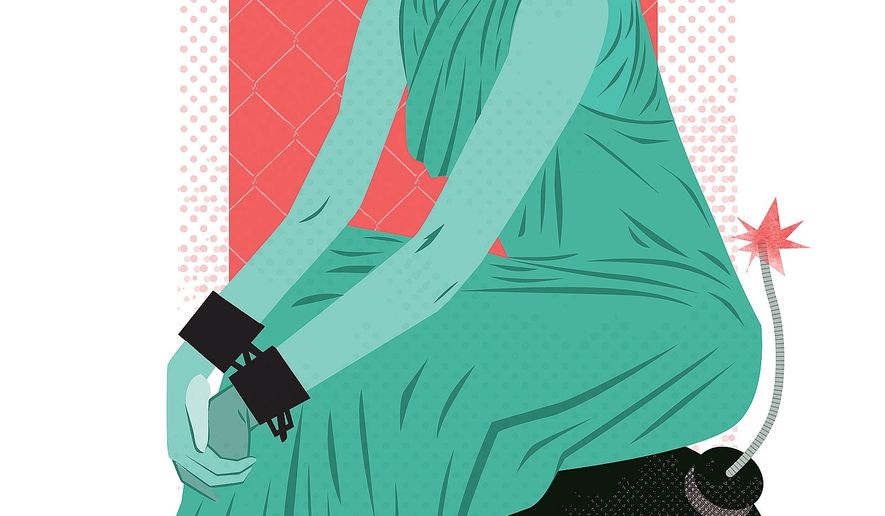OPINION:
Whatever happened to Charlie Hebdo? For years, the French satirical magazine threw spit balls at polite society. Its writers and cartoonists particularly delighted in ridiculing religions and pieties. Some people found that amusing and thought-provoking. Others were appalled and offended. Such is life in a free country.
Then on Jan. 7, 2015, two French Muslims of Algerian descent broke into Charlie Hebdo’s offices firing automatic weapons and shouting “Allahu akbar!” They killed 12 people including the editor-in-chief. As they left, they proclaimed: “We have avenged the Prophet Muhammad!” Their broader message: Under Islamic law (as interpreted by them), insulting or even parodying Islam is forbidden. That law applies not just to Muslims in Islamic states but to everyone everywhere. Those who violate it are to be executed.
“Je suis Charlie!” and “Not afraid!” were the defiant rallying cries of the 2 million people, including more than 40 world leaders, who gathered for a unity rally in Paris a few days later. Never, they vowed, would they relinquish their freedom. But, little by little, that’s what is happening.
Last year, Charlie Hebdo’s current editor said he would publish no more cartoons of Muhammad. This year, journalist Zineb El Rahzoui resigned from the magazine, explaining: “Freedom at any cost is what I loved about Charlie Hebdo.” Today, she added, the magazine lacks the “capacity to carry the torch of irreverence and absolute liberty.”
The 35-year-old, Moroccan-born, French author of a book titled “Destroy Islamic Fascism,” also has said: “You can be Arab, Muslim and a free thinker.” Yes, but the price is steep. Fatwas have been issued authorizing her assassination and bodyguards now accompany her wherever she goes.
Other examples of self-censorship are less obvious but should not go unremarked. What newspaper in Europe or America today would run cartoons lampooning jihadists — much less Islam? The hit Broadway show “The Book of Mormon” parodies the Church of Jesus Christ of Latter Day Saints. Can you imagine anyone producing a similar show focusing on Islam?
For five seasons, the Showtime series “Homeland” told the tale of a CIA agent fighting jihadists. No longer. Now ex-spy Carrie Mathison works at a “foundation for Muslims mistreated by domestic law enforcement.” The Islamic Republic of Iran is depicted as honorably abiding by its obligations under the nuclear agreement concluded by President Obama — while a wicked CIA official conspires with the Mossad to convince the president-elect (a tough-minded woman senator from New York) otherwise.
But the biggest news is this: Canada is now considering criminalizing free speech where Islam is concerned. Last month, Iqra Khalid, a Pakistani-born Liberal member of Parliament, introduced into the House of Commons Motion 103. It calls for a study and recommendations for government actions, including new laws, to curb expressions of “Islamophobia.” The term is not defined, but it is characterized as a manifestation of “systemic racism and religious discrimination.” You might wonder: How does a fear, even one that is unjustified and irrational, fit into that category?
Encouragingly, on April 9, a group called “Muslims Against M-103” will protest what it sees as the “infiltration of the Muslim Brotherhood” and the effort to suppress those Canadian Muslims “who stand up to the jihadi agenda and fight for Canada’s treasured institution of ’Freedom of Speech’ that this initiative tries to stifle.”
Canada’s Muslim reformers understand that what is being contemplated is not so different from a blasphemy law. And they know the impact such laws have had in other countries.
In Pakistan, for example, Asia Bibi, a Christian, sits on death row. Her crime? Making remarks some of her Muslim neighbors considered disrespectful of Islam. In Saudi Arabia, Raif Badawi, a blogger who criticized senior religious officials online, has for five years been imprisoned — and flogged — for “insulting Islam through electronic channels.” And in Iran, Maryam Naghash Zargaran, a convert to Christianity, has spent most of the past four years in Tehran’s notorious Evin prison for “propagating against the Islamic regime.”
Such developments would no doubt please Ruhollah Khomeini, leader of Iran’s Islamic Revolution. In 1989, he issued a fatwa calling for the assassination of Salman Rushdie whose novel, “The Satanic Verses,” he found offensive. A foreign ruler pronounces a death sentence on a British subject for exercising his rights in a free country. That should have elicited a firm and furious response from Western leaders. It didn’t.
In 2011, the disingenuously named U.N. Human Rights Council adopted a resolution calling for consideration of measures to deter negative commentary about Islam. The Organization of Islamic Cooperation, the largest voting bloc in the U.N., then went a next step further by organizing the “Istanbul Process,” intended to establish laws against Islamophobia. During the Obama administration, Secretary of State Hillary Clinton expressed American support for the Istanbul Process.
I expect Secretary of State Rex Tillerson will take a different view. But if he or others in the Trump administration are unsure, they should talk to Tarek Fatah, the Pakistani-born Canadian columnist for the Toronto Sun. He has written to Ms. Khalid as well as to Prime Minister Justin Trudeau, another supporter of M-103, asking whether they’d want him prosecuted for Islamophobia were he to publicly “discard” some passages of the Koran as “inapplicable today.” He cited one that calls on Muslims to “cast terror into the hearts of those who disbelieve” and “strike off their heads.”
Born in a land that has become decreasingly free, Mr. Fatah is understandably distressed that so many of his adopted country’s leaders seem so willing to surrender Canada’s once-prized freedom. What may be worse: They are not ashamed. On the contrary, they are congratulating themselves for their sensitivity and their virtue.
• Clifford D. May is president of the Foundation for Defense of Democracies and a columnist for The Washington Times.




Please read our comment policy before commenting.